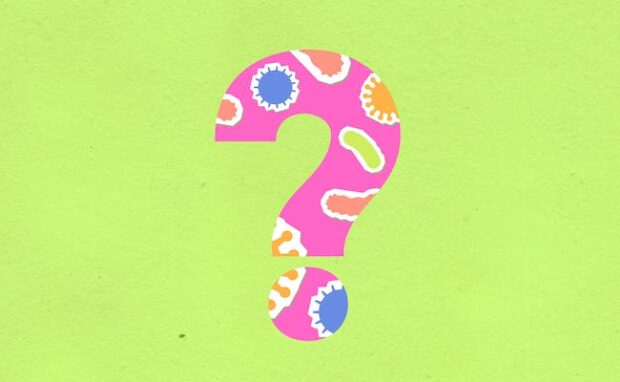Keto effects on seizures might be in microbes
Researchers from the University of California, Los Angeles, are studying microbes to determine how the ketogenic diet helps minimize seizures. They recognize that low-carb diets are effective at reducing the incidence of epileptic episodes. However, it is difficult for many to follow the keto diet. Soon, its results may help replicate the effects without using this regimen.
The ketogenic diet is a well-known weight-loss method, but it may have unintended side effects. For example, some may develop kidney stones due to the protein-rich routine. This study may help uncover keto effects on seizures and epilepsy so that we can avoid these risks. Also, you may want to try the keto diet yourself!
This article will discuss why scientists study microbes to learn more about the positive effects of the keto diet. Later, I will elaborate on this diet so you can try it, too.
What is the link between microbes and keto effects?

Our stomachs have microorganisms or “good bacteria” that help us digest food. Consequently, the food we eat will have different effects on these microbes.
Thus, studying these microbes may give us an idea of our diet’s impacts. “Narrowing down the functions of the microbes that are beneficial toward seizure protection can potentially lead to new ways to enhance the efficacy of the ketogenic diet or to mimic its beneficial effects,” said UCLA molecular biologist Gregory Lum.
He led a team of researchers to investigate the critical interactions among the guts of epileptic mice, the chemicals they produce, and the products of the hippocampus’ genes. Then, they verified keto effects on the gut biomes of 10 children with epilepsy at the UCLA Mattel Children’s Hospital.
The research team introduced the children’s microflora into the guts of engineered mice. Microflora samples collected from those children proved to be more effective in reducing seizures than samples before the keto diet.
The scientists also discovered metabolic changes in humans and mice related to amino-acid metabolism, energy production, and specific forms of fatty acid oxidation.
You may also like: AI program helps fight homelessness
Mice who received microbes affected by the ketogenic diet had changes in gene activity in the hippocampus linked to epilepsy. Overall, keto effects manifested through these microorganisms.
ScienceAlert says there is evidence that fat-rich, carb-poor diets reduce seizure risks in those with refractory epilepsy. However, it may give rise to unintended consequences, such as kidney stones.
Such studies can help us identify the nutrients from the keto diet that can reduce seizures. Soon, researchers hope the results can help them create treatments that don’t rely on this diet.
What is the keto diet?

The Harvard School of Public Health website says the ketogenic or “keto” diet is a “low-carbohydrate, fat-rich eating plan.” In the 19th century, people used it to control diabetes and treat children with epilepsy.
It works by depriving the body of glucose, the main energy source of all our cells. It comes from carbohydrate-rich foods, such as rice and bread.
The brain requires a steady glucose supply of 120 grams daily because it cannot store the substance. When eating fewer carbs, the body takes glucose from the liver and breaks down muscle to release glucose.
If this process continues for 3-4 days with a fully depleted glucose supply, blood insulin levels decrease, prompting the body to use fat as its primary fuel.
The body converts fat into ketones via ketosis, hence the diet’s name. Healthline says it can help you manage numerous health conditions, such as diabetes and obesity.
Harvard says there is no “standard” ketogenic diet, but it typically reduces total carb intake to less than 50 grams daily. That is less than the amount found in a medium plain bagel. Reduce or eliminate these foods if you want to follow the keto diet:
You may also like: AI editor turns microbes into renewable fuels
- Sugary foods
- Grains and starches
- Fruit
- Beans and legumes
- Root vegetables and tubers
- Low-fat or diet products
- Alcohol
- Sugar-free diet foods
It might be surprising that the keto diet discourages eating fruits. However, many fruits produce a lot of sugar that goes against this regimen. Instead, you should eat more of the following to enjoy the keto effects:
- Meat
- Fatty fish
- Eggs
- Butter and cream
- Cheese
- Nuts and seeds
- Healthy oils
- Avocados
- Low carb vegetables
- Condiments
Conclusion
Experts from the University of California, Los Angeles, are studying microbes from people who follow the keto diet. They believe these could help them understand positive keto effects.
Pinpointing the nutrients that trigger them may help the researchers create a medicine with similar effects. As a result, people could enjoy keto’s benefits without its risks.
Learn more about this ketogenic diet study by reading its Cell Reports webpage. Note that this article does not provide medical advice.